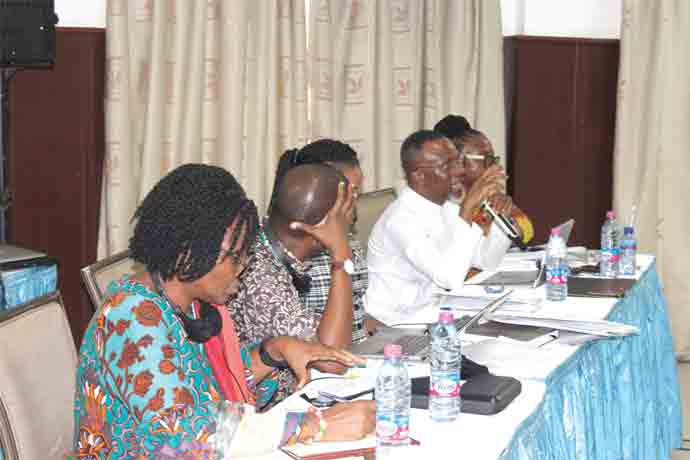
Intra-African trade to deepen by 22% - Third World Network
Trade among African countries is expected to increase by 22 per cent in the next four years when the Continental Free Trade Area (CFTA) becomes effective.
Intra-African trade currently averages 12 per cent a year.
To better harness the opportunities for development, civil society organisations and governmental trade agencies across the continent last Tuesday began a dialogue on the opportunities presented by the Africa Continental Free Trade Area (AfCFTA).
The two-day multi-stakeholder consultation was organised by the Third World Network (TWN-Africa), with the support of Open Society Initiative for West Africa (OSIWA).
It brought together trade policy experts from the African Union (AU), the Economic Community of West African States (ECOWAS), trade negotiators from Ghana, Kenya, Senegal, the National Association of Nigerian Traders, the Manufacturers Association of Nigeria (MAN), among several other trade and commerce individuals, businesses and organisations.
Agreement
The AfCFTA was agreed to by 44 heads of state at an Extraordinary Heads of State Summit of the AU in Kigali, Rwanda, on March 21, 2018.
Already, Kenya, Ghana, Rwanda and Niger have ratified the agreement, leaving 18 countries to ratify for the agreement to enter into force.
Collaboration
The Director of Trade and Industry of the AU Commission, Mrs Treasure Maphanga, in a keynote address, expressed optimism that with the rate of ratification, the agreement could be in force by next year.
Mrs Maphanga, whose speech was read on her behalf by a Senior Expert of the Trade and Industry Department of the AU, Mr Million Habte, reminded participants that the formation and the entry into force of the agreement was not an end in itself.
The most important aspects, she said, were ensuring trade policy, facilitation, productive capacity, trade related infrastructure, finance, trade information and factor market integration.
Those aspects could be realised with tighter collaboration with civil society organisations, she added, saying the AfCFTA by its design and process would have to be driven by member states.
She, therefore, commended TWN for starting the consultations and said the AU had also begun some consultations on its own with fora, engagements with the pan-African Parliament and planned engagements with the youth and women.
Commendable but...
The Coordinator of the TWN-Africa, Dr Yao Graham, commended any initiative that aimed at the integration of Africa.
He, however, expressed caution with the AfCFTA agreement, saying that there were implications for sectors and proper linkages were needed.
“Nobody is against regional integration... but we have had experiences with trade liberalisation which have not yielded any results,” he said.
Mr Graham added that a more considered approach was needed in decisions about the markets in individual economies that were to benefit from credit, the productive capacities to build and the type of institutions to focus on.
Lack of coordination
On integration and the AfCFTA, an official of the TWN, Mr Tetteh Hormeku, said compared with the Abuja Treaty, another trade facilitation agreement, the AfCFTA lacked coordination.
He stated, for instance, that with the implementation of the AfCFTA, 90 per cent of products traded among countries would have to be duty free and quota free.
That, according to him, would pose challenges, as countries had different levels of development, and that had not been incorporated into the policy.
